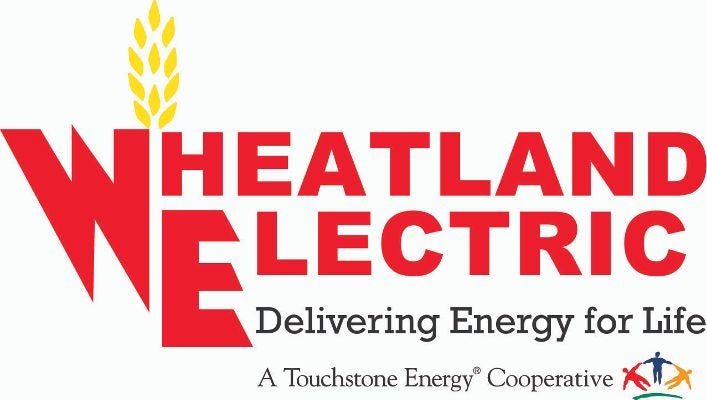A polar outbreak across the country caused historically low temperatures and ice and snow to grip much of the nation during Winter Storm Uri, Feb. 13-18, 2021, stressing both electric generating capacity and the ability of the transmission grid to move power from state to state and region to region.
During this winter weather event, the Southwest Power Pool (SPP), which acts as the regional transmission operator and balancing authority over 14 states across the Midwest, declared multiple emergency situations. Many electric cooperatives, including ours, were forced to institute rolling outages due to the inability of electric generation supply to meet demand.
Due to the unprecedented nature of this incident – unparalleled demand coupled with extremely high wholesale power costs – many of our members, including you, had a lot of questions about what happened and why. We’re here to answer those questions, share facts, and dispel myths.
Tip: Scroll to the bottom of end of this Q&A to see the impact of February's freezing temperatures on your home's heating system in both Scott City and Great Bend, KS.
Q: Why are bills higher because of the February winter weather event?
A: There are at least two factors. The extremely cold temperatures during February’s historic cold spell caused members to use more electricity than they would during a normal February. This, in combination with the record-high costs of natural gas, caused members to see higher-than-normal bills starting in March, which reflects February usage.
Q: Can you elaborate in more detail why bills are higher?
A: There are two components to your bill: the price per kilowatt-hour, which is the unit of measurement for electricity, and how much electricity you use. The price for electricity is set in Wheatland’s tariffs, but the amount of electricity that you use varies with each monthly bill. The Power Cost Adjustment (PCA) is a rate mechanism electric utilities use to recover fluctuating purchased wholesale power costs. For several months, the PCA on your electric bill has been a negative number due to
the low price of natural gas. However, February’s winter weather event required utilities to purchase natural gas at record-high costs, and these prices are reflected in the PCA charge on your bill starting in March.
Q: If I did everything I was asked to do to conserve energy, and my usage went down, will my March bill still be higher?
A: More than likely yes. Your bill may still be higher than this time last year because not only were temperatures much colder, but the price of natural gas was significantly higher, impacting the PCA factor of your bill.
Your conservation efforts helped to keep your bill lower than if you had not conserved during the winter event and we thank you for your efforts.
Q: Why aren’t cooperatives absorbing the extra costs?
A: Cooperatives like ours set electric rates to recover only those costs for providing electric service and to support the financial strength required to operate an electric utility. As an electric cooperative, we don’t hold sufficient cash reserve funds to cover the costs associated with the winter weather event.
The cooperative business model benefits members in several ways, including lower electric rates and capital credits. Members also benefit since no portion of their electric bill supports investor dividends or company stock prices.
Q: What has Wheatland Electric done to mitigate the higher costs associated with the winter weather event?
A: The Wheatland Electric Cooperative Board of Trustees voted Feb. 23, 2021, to allow any additional costs from the winter weather event to be spread out evenly over a 12-month period, starting with members’ March 2021 bill.
Q: Can a member pay the additional costs associated with the winter weather event upfront?
A: Yes, members can contact their local Wheatland Electric office and speak with a consumer services representative to pay any additional charges related to the winter weather event.
Q: Did Holcomb Station, Sunflower Electric Power Corporation’s coal unit in southwest Kansas, run and help during February’s winter weather event?
A: Yes, the entire unit ran at full capacity during the entire winter weather event. Being able to use this as a source of energy saved us approximately 20 cents per kWh, saving the average residential member approximately $200. Without Holcomb Station, the cost impact to Wheatland and our wholesale energy provider, Sunflower Electric, would have been much higher.
Q: Is it an advantage or disadvantage to have Sunflower Electric as a member of the Southwest Power Pool (SPP)?
A: Every day, around the clock, the SPP oversees, manages and balances the dispatch of the energy across its 14-state region. Via its integrated marketplace, the SPP dispatches generation based on economics and reliability. Since its inception in 2014, the integrated marketplace has proved beneficial for SPP’s members, including Sunflower Electric, our generation and transmission provider. The fact that we can flip a switch and have access to affordable electricity most of the time underscores the resilience of the U.S. electric grid.
Q: Why were natural gas prices so high during the winter weather event?
A: Utility systems (gas and electric) are designed, built and operated to support a range of demands in a cost-effective manner. These estimated demand ranges include predicted peak demands. Infrequently, events occur beyond predicted peaks. February’s extreme cold weather event is an example. Natural gas demand exceeded predicted peaks due to the record-setting cold, causing record heating demand combined with record fuel demands for electric power generation.
Q: What action is Wheatland Electric taking to minimize our exposure should a winter storm like this hit our region again?
A: Wheatland will continue to work with Sunflower Electric to look at additional ways to hedge spikes in fuel costs in the future.
Q: Should members expect an impact on cooperative operations and expenses, and will this affect future capital credit retirements?
A: We do not anticipate the recent winter weather event to affect future capital credit retirements or company expenses in 2021.
Q: There are colder states than Kansas. Why didn’t they have problems with freezing gas?
A: Extreme high gas demand strained natural gas infrastructure across wide sections of the United States, including states colder than Kansas.
Q: Are natural gas prices regulated? Why are they allowed to be so high?
A: Gas markets include a sliding price scale to manage imbalance between supply and demand. During periods of low demand and high supply, prices decline. When demand exceeds supply, prices increase. In rare occasions, the imbalance can become extreme, and the associated price signal is equally extreme. To the best of our knowledge, record natural gas demands triggered extreme scarcity pricing to encourage the maximum reduction in consumption during February’s winter weather event.
Q: Any good news for Wheatland Electric members?
A: The good news is that we are far more protected from market conditions than other utilities across the state and nation. In addition,
the spirit of our cooperative nature came through. Some of our members in agriculture and related industries voluntarily shut down operations during calls to conserve energy or used their own generation resources to operate. Our residential members came through too, conserving energy during Energy Emergency Alerts.
Without this cooperative spirit, the February weather event could have had more devastating consequences for both cost and infrastructure.



